The Search for God Page 2.1.1.1
We all know things. We all have knowledge. This article seeks to explore these types of knowledge. All these tools have strengths and weaknesses that will apply to our search for God.
The Information Itself—Ultimate Reality
When we speak of knowledge, we speak about what we know. However, we also understand there is knowledge and information in the world that is vast and that we will never know.
I will never know about the composition of a dust particle on a planet in another galaxy. Heck, I will probably never know about an indigenous person in the Amazon jungle.
I don’t even know at this moment what my blood potassium level is or what the concentration of my brain chemicals are to help me write this article.
Yet, all these things have a truth, a reality, and embedded information that can be transformed into knowledge. The information itself or the knowledge that arises from that is reality. This information is what is really happening.
When we seek God, we are searching for someone who knows ultimate reality, a being with ultimate knowledge, a being such as this either exists everywhere or exists outside of time.
So this being can go to and exist at any moment in history. Our task is to gather the information and data available to us to come to some important conclusions about reality, about what is really true.
Here is the kicker, ultimate reality is true and the same for every human in the Universe.
Death is a facet of ultimate reality. I am a facet of ultimate reality. Does God know ultimate reality completely?
The Gathering Of Information
From the moment we perceive, whenever that moment begins, we are a biological machine designed to gather information, store it, and process that information.
During the gathering phase, we use many different methods of information extraction, which often overlap with the processing of the information.
We don’t simply record our senses: what we see, what we hear, what we smell, touch, or taste. That is a video camera or a thermometer or an audio recorder.
We understand that our senses gather information, but our senses are tied to emotions, thoughts, and bodily reactions.
So when my 1-year-old child tasted chocolate cake for the first time, a smile crossed his face, his eyes opened wide, then he plunged his whole head down onto that plate trying to engulf himself in the chocolate cake. Words fail to describe the scene.
This is the difficulty when we speak of knowledge. Knowledge gathering and processing are closely tied to physical response and emotional responses.

However, the following list provides ways in which we gather information. Take a moment and order the importance of each of these ways to gather information:
| By reason and logic | By applying an algorithm |
| By mathematical proof | By the trial and error method |
| By having a divine illumination or revelation from a divine agency | By observing the world in its “natural state”; seeing how the world operates without performing any experiments |
| By the scientific method | By acquiring knowledge that is embedded in one’s language, culture, or traditions. |
| By listening to the testimony of witnesses | By an argument from authority, which could include religious, literary, political, philosophical, or scientific authorities |
| By dialogical inquiry (conversation). | By some claimed form of enlightenment following a period of meditation (such as the Buddhist enlightenment known as bodhi) |
| By learning from experience |
NEED a GRAPHIC – A line one end pure thought and on the other pure senses, then plot them along the line. Horizontal line
SECOND graphic – Vertical line Pure intellect and pure emotion
Processing Information
Once we gather information, then we begin to determine what that information means and how it applies to my life and ultimately to reality. During the processing phase, we add to our current knowledge and change our perceptions or positioning.
Processing information is a complex process, probably even more complex than gathering information.
We place different levels of importance on what we hear and what we perceive. We then filter that through our intellect, current knowledge, and emotions.
For example, we see a red flower (observing the world), and somebody comes by and says, “That is a rose” (testimony of witnesses, argument from authority).
The red color brings to mind a red tricycle you rode this morning and how much joy that brought (emotion), then you smile.
With just that simple exchange, new knowledge is developed.
For some, nothing. They have never experienced and have no information about the movie.
For others, consideration of that word brings to mind the plot and scenes surrounding it, for still others, the word “rosebud,” brings emotions of lost innocence and a simpler time.
On and on we go, from Shakespeare to Harry Potter, from a rose to molecular biology, from atheism to God.
Every word and every image has associated tags and categories of your own personal knowledge, interpretation, and emotions that intersect with other humans in this reality we share.
Though we may process differently and possess varying emotions, ultimate reality is the same for everyone. Science, history, and communication possess a common characteristic – external reality.

Storage Of Knowledge
We study; we record; we test. Humans take the information we gather and process, then store the information as knowledge. For science, we attempt to strip all emotion and bias from our gathering and processing stages.
For history, some want “just the facts” of what happened, but others want to know why it happened, so when they store information, they might interpret the data through an emotional lens to provide a context of what happened.
For interpersonal communication, there is “what is said” and what the parties “think or feel” is said. A husband and wife having the same conversation can process it very differently and store that knowledge completely differently as well.
During the search for God and truth, we might gather the same information, but when we process that information, we bring in all our previous biases, doubts, anger, information, and all the other “knowledge” about the topic, so that anything new is “colored” by what we “already know”.
So to me, when I decided to begin this endeavor (search for God), I had to ask myself, “Where do I start?”.
Where do I start my search for God? Clearly, each of us starts where we are at in this moment, but we can make a declaration, which is what I did. Check out that article.
Transmission Of Knowledge
Finally, we come to the transmission of knowledge. In our search, we have a problem. As explorers, we are unable to scale the heights of the heavens like Kilamanjaro.
We are dependent upon received knowledge. Maybe we can just think God into existence, but does the ability to conjure up a being in my mind mean that being is real or true? Clearly not.
So we must find those people who claim to have knowledge of God and explore their claims. Who will we trust? How do we know what knowledge and information is real and true?
That is what I hope to accomplish in the next few articles. Please stick with me.
What Next?
- What is the crucial concept?
- Knowledge is a complex system of gathering, processing, and storing information.
- Why is that significant?
- In our search for ultimate reality, we need to understand ourselves as much as what or who is around us.
- If you agree, the next steps
References And Links
What types of knowledge help us find God?
Epistemology in Philosophy Simply Explained (Past to Present Day Theory)
Philosophy: Epistemology – Introduction to Theory of Knowledge
- Wikipedia – Descriptive Knowledge
- Michael Shermer – Is God All in the Mind?

Leave a Reply